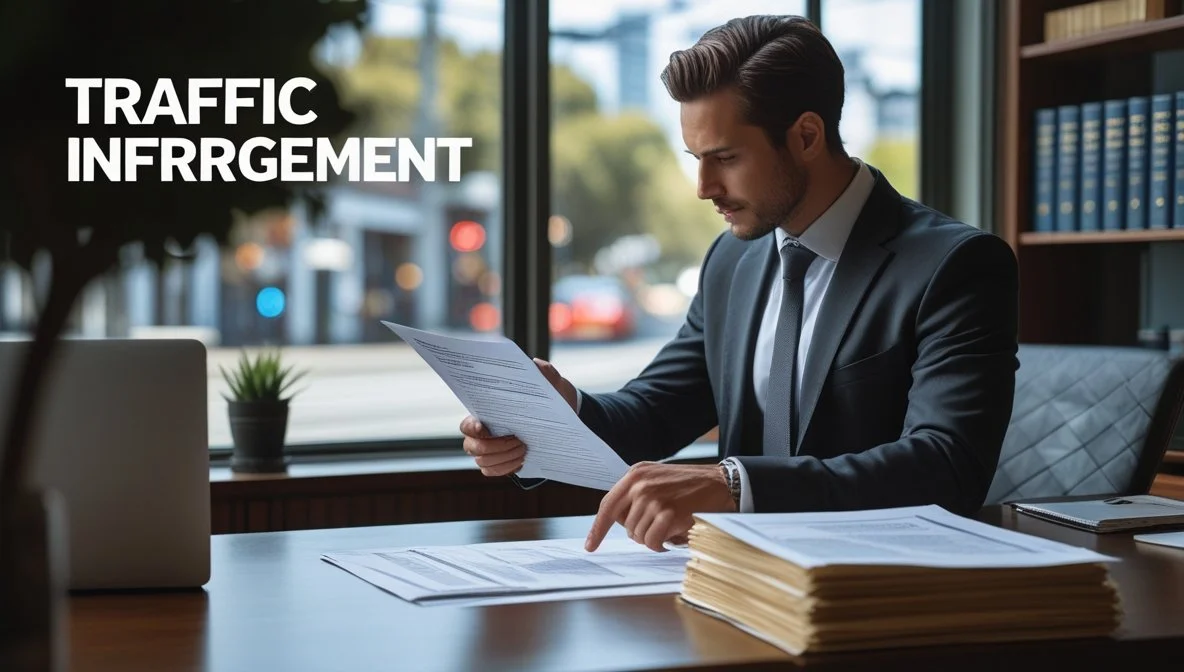How Traffic Infringement Lawyers Melbourne Manage Traffic Cases
Traffic offences can create significant stress for drivers. Receiving a traffic infringement notice may feel overwhelming, raising concerns about the legal consequences which can include financial penalties, and a period of either licence loss and/or cancellation. At times, individuals wonder about the best path forward and whether professional legal representation can make a difference. This is where experienced traffic infringement lawyers provide clarity and support.
When addressing such cases, traffic infringement lawyers Melbourne apply a structured process to manage matters efficiently. These lawyers have an in-depth understanding of traffic laws, evidential requirements and court procedures. They focus on helping clients navigate legal complexities while aiming to achieve the best possible outcome, whether it be a complete defence to the infringement, or a reduction in the penalty.
Understanding Traffic Infringement Cases
Traffic infringements can include a variety of matters such as speeding, red light offences, seatbelt violations, parking offences, and licence issues. Each case requires precise legal handling due to differences in law interpretation, evidential issues, and potential consequences.
Traffic infringement lawyers handle these cases by:
Reviewing the details of the infringement notice.
Examining the evidence, such as dashcam and traffic camer footage and police statements.
Identifying legal defences or technical errors that could impact the case outcome.
Advising clients on whether to contest the matter or negotiate a resolution.
These steps help ensure that every aspect of the case is carefully considered. For drivers concerned about the effect on their driving record or fines, professional guidance offers peace of mind and clarity.
How Lawyers Strategise Traffic Case Management?
Experienced legal teams apply systematic strategies when dealing with traffic infringement matters. The process begins with an in-depth case analysis. This phase involves:
Gathering all relevant documents, including all materials police intend on relying on in support of the charge or infringement.
Identifying any procedural errors or evidential issues.
Assessing whether the infringement falls within a contested category requiring court representation.
Following this, lawyers may prepare the matter for referral to be litigated in Magistrates’ Court. Strong representation can lead to reduced fines, alternative penalties, or even dismissal of the charge.
Key Roles of Traffic Infringement Lawyers
The primary role of traffic infringement lawyers is to protect the rights of clients while addressing legal responsibilities. Their responsibilities include:
Case preparation: Ensuring that all evidence and documentation are meticulously organised.
Legal representation: Advocating for clients in hearings or negotiations.
Client consultation: Explaining legal options, potential outcomes, and risks.
Appeal processes: Managing appeals when necessary, ensuring deadlines and procedural requirements are met.
This thorough approach is designed to relieve stress and increase the chances of a favourable result for the client.
Addressing Common Concerns
Traffic infringement cases often involve worries about the impact on driving privileges, insurance rates, and legal costs. These concerns can be addressed through:
Clear legal advice: Understanding the implications of contesting or accepting a fine.
Cost-effective solutions: Lawyers working to avoid excessive court fees or penalties.
Timely resolution: Acting quickly to meet deadlines and avoid escalation.
Clients benefit from knowing their matter is managed by a team with expertise in traffic law and courtroom procedures.
Preventative Strategies for Drivers
While legal representation is essential when facing traffic infringements, prevention is equally important. Lawyers advise clients to adopt safe driving habits and stay informed about local traffic regulations. Key strategies include:
Regularly reviewing traffic laws and updates in your jurisdiction.
Using dashcams or GPS logs to maintain evidence in case of disputes.
Keeping vehicle registration and licence details updated.
Avoiding high-risk driving behaviours such as speeding or driving whilst operating a mobile phone.
These strategies can reduce the risk of receiving infringement notices to avoid severe legal consequences..
Why Professional Legal Support Matters?
For drivers questioning how traffic infringement cases are handled, professional guidance is invaluable. Experienced lawyers assess cases with attention to detail, applying legal knowledge to defend the client effectively. They use negotiation skills to seek fair outcomes. Their goal is to minimise stress for the client while navigating the complex legal system.
Conclusion
Traffic infringement matters require careful handling and strategic legal management. By engaging with experienced legal representation, drivers gain clarity, support, and confidence in navigating their cases. Whether contesting a fine or seeking to reduce penalties, professional lawyers guide clients step by step through the process.
At James Dowsley & Associates, we understand the importance of protecting your rights in the face of legal obligations. Drivers facing traffic offences can contact us for personalised advice and representation. We encourage anyone dealing with a traffic infringement to seek expert guidance promptly to safeguard their driving record and legal standing.
Contact our office today to schedule a consultation with experienced traffic infringement lawyers and ensure your case is managed effectively.

